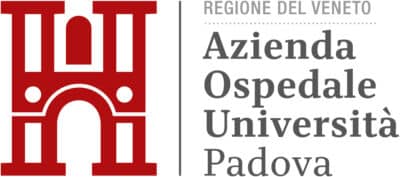

The First-level short specialisation degree in Coordination of Health Professions provides the required skills for the role of Health Planning Coordinator, in order to constantly improve the quality and provision of human, structural and technological resources of a company.
The course tackles two thematic areas: healthcare management and professional development, and it meets the requests of Law no. 43 of 01/02/2006, providing the qualification required for access to the coordination role.
The course allows the development of independent judgment in the evaluation of objectives, roles, activities and organizational methods; communication skills in promoting the organizational development of health professions services; ability to learn useful methodologies for promoting, coordinating, managing projects and processes of continuous quality improvement (professional and organizational).
The teaching activity of the Master in Coordination of Health Professions is, for the most part, in presence. It also includes, for activities other than the internship, a limited part delivered via telematic methods (synchronous and asynchronous), for a maximum of 30%.
Attendance is mandatory for 70% for admission to the final exam.
The internship, of which attendance is mandatory for 100%, includes 500 hours (20 CFU) of which 200 are of field activities in locations affiliated with the University. The remaining 300 hours of internship are dedicated to self-learning and reporting.
At the end of the course, the student will have to produce a written paper that will be presented orally, with the help of audiovisuals, in front of a commission composed of University professors and external experts.
The Master is aimed at professionals with diplomas/degrees in the health professions listed in the admission notice. It enables the organizational coordination function in the area of health professions. Possession of a three-year diploma/degree in one of the health professions of the sector is the mandatory requirement for admission. The Master is aimed at providing skills to:
- Coordinate resources aimed at the objectives assigned to the Unit/Service;
- Adopt methods for the development of professional quality in the Unit/Service;
- Evaluate the productivity of organizational processes and assigned professional resources.
The following teaching program will be held during the Master in Coordination of Health Professions:
- Management of health professions, which will cover the following topics: core elements of management of health professions, planning, development and continuity of pathways and services, use of the evidence-based approach to improve the organization;
- Complexity in health organizations and management strategies, which will cover methodology applied to organization, methodology applied to quality, corporate management of health professions: skills and functions, methods of managing working hours and shifts, procedures and processes within the U.O.;
- Organization and health economics, which will study elements of economic analysis of the health sector, the economics of health companies, public employment rules for managing the employment relationship;
- Health planning and programming, broken down into the architecture of the health information system, health indicators and statistics for health quality, health planning and programming, use of administrative databases to identify health profiles.
- Promotion of safety and appropriate management of human resources, which will investigate the issues of responsibility in coordination, the theory of human motivation at work, bioethics and biolaw, as well as continuous training in healthcare and risk management in healthcare.
The internship is aimed at practicing the skills acquired in the classroom and developing management skills for coordinating healthcare professions.
The internship experience will allow the student to acquire skills in using information systems, determining resource needs, evaluating and enhancing human resources, identifying a reward system for human resources management and managing and supplying stocks. Furthermore, the development of skills in the following areas is proposed:
- Planning and control of production processes;
- Management of human resources;
- Development of human resources and training.
The student will be assigned a Company Tutor from the internship location, usually the coordinator or professional indicated by the unit or service as a reference for internship activities within the service itself. He monitors the development of the skill in pursuing the objectives assigned by the course and agreed with the intern and is responsible for evaluating the intern.
The final paper is the work that the student presents at the end of the training course in which an objective among those pursued during the internship will be explored in depth, seeking applications to any context that is appropriate (for example, their own work context or the one in which the internship took place). With the paper, the student must provide a detectable personal contribution through their own considerations and evaluations.
The paper is aimed at the final exam, consisting of the oral presentation of the topic covered in the paper (also making use of audiovisual supports) and a short discussion in front of a commission composed of three members, two of whom may be teachers and the third an external expert. In the event of a negative judgment, it is possible to repeat the final exam only once.
The general ranking of merit for the academic year 2025/26 will be published on the Italian page of this First-level short specialisation degree according to the timing provided in the Call.
Information
FAQ
The admission ranking is generated by the sum of the score obtained from the evaluation of qualifications and the score obtained in the written test, if applicable.
In particular:
- For the evaluation of qualifications, during the pre-registration phase all candidates must attach to the application, in addition to their CV, the document “Scheda sintesi crediti” (title summary sheet) completed and signed (under penalty of exclusion from the ranking);
- If at the deadline for pre-registrations the number of candidates is greater than the places available (50 for the Padua location and 50 for the Monselice location), a written test with multiple-choice questions will be held. The holding of the written test, if applicable, will be communicated after the deadline for pre-registrations and, generally, the date is set for the following week.
The final ranking is published both in the appropriate section of this web page and on the department website at the page:
https://www.dctv.unipd.it/didattica/master-i-livello/coordinamento-delle-professioni-sanitarie
The following are qualifications for admission to the Master:
- Three-year university diplomas in: health assistant; dietitian; applied dietetics and diet; professional educators; physiotherapist; dental hygienist; nurse; speech therapy; speech therapist; orthoptist – ophthalmology assistant; orthoptist and ophthalmology assistant; orthoptist-ophthalmology assistant; midwife; technical optics; podiatrist; nursing sciences; audiometrist technician; hearing aid technician; psychiatric and psychosocial education and rehabilitation technician; audiometry and hearing aid technician; biomedical laboratory technician; neurophysiopathology technician; orthopedic technician; biomedical laboratory health technician; medical radiology health technician; health technician for environmental and workplace prevention; neuro and psychomotor therapist of developmental age; rehabilitation therapist; neuro and psychomotor rehabilitation therapist of developmental age.
- Three-year degree in one of the following classes: SNT/4-Class of degrees in prevention health professions; SNT/2-Class of degrees in rehabilitation health professions; SNT/3-Class of degrees in technical health professions; SNT/1-Class of degrees in health professions, nursing and obstetric health professions.
- Specialist degree DM 509 in one of the following classes: SNT_SPEC/1-Class of specialist degrees in nursing and obstetric sciences; SNT_SPEC/2-Class of specialist degrees in the sciences of the health professions of rehabilitation; SNT_SPEC/3-Class of specialist degrees in the sciences of the technical health professions; SNT_SPEC/4-Class of specialist degrees in the sciences of the health professions of prevention.
- Master’s degree DM 270 in one of the following classes: LM/SNT1-Nursing and obstetric sciences; LM/SNT2-Rehabilitation sciences of the health professions; LM/SNT3-Sciences of the technical health professions; LM/SNT4-Sciences of the health professions of prevention.
- Regional School Diploma for Nursing accompanied by high school diploma/state exam of secondary school.
- Health Professions (L. 1/2002, art. 10 paragraph 1) equivalent to one of the degrees in the health professions accompanied by a high school diploma/secondary school state exam.
Teaching activities take place:
- For the Monselice location in the classrooms of the Ospedali Riuniti Padova Sud in Via Albere, 30 – Monselice (PD)
- For the Padua location in Classroom B of the Physiology and Organic Chemistry Building in Via F. Marzolo, 3 – Padua (PD)
Teaching activities take place approximately from the end of November to the end of July, distributed over a single day of the week (Thursday for the Padua location and Friday for the Monselice location) for a maximum of 10 academic hours.
The internship takes place starting from the month of April (and no later than the month of August), subject to prior planning between the student, the University and the host company.
The final exam usually takes place in the month of September on dates communicated well in advance.

